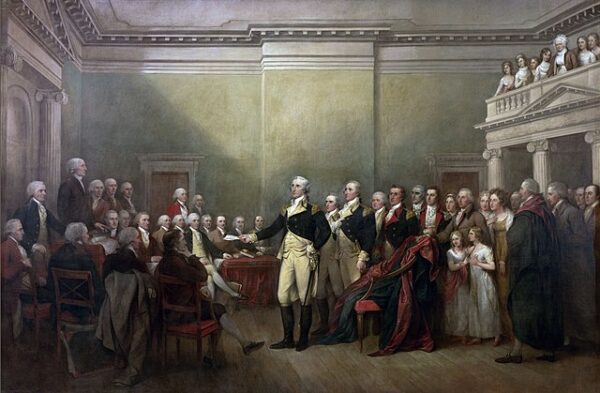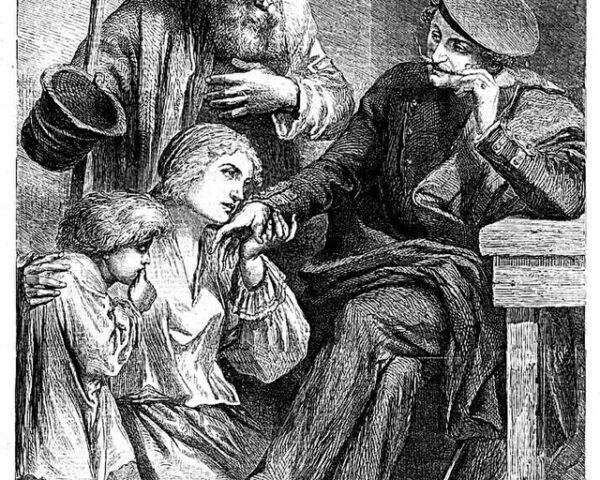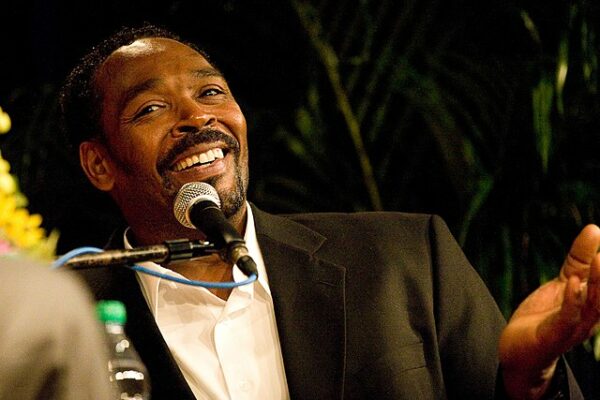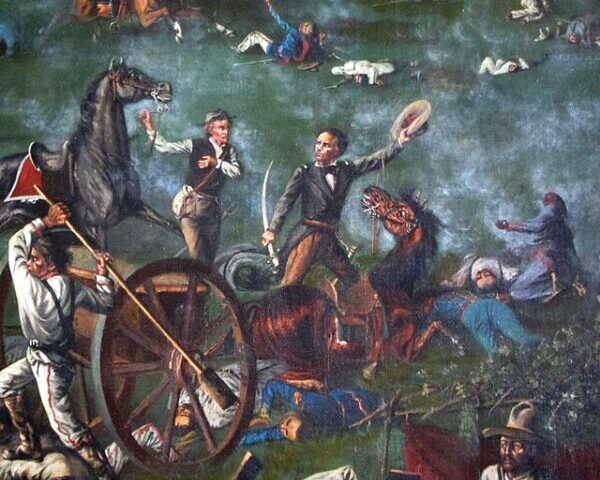One day near the end of the Revolutionary War, the King of England and his royal painter, Benjamin West, born in Pennsylvania, were discussing what was happening in America. The King asked West what George Washington would do were America to be declared independent. West told him he thought the general would retire to a private situation. Surprised, The King said, “if He did He would be the greatest man in the world.”
On December 23, 1783, George Washington became the greatest man in the world. The most revered man in the United States, he could easily have claimed a crown but instead took one of the most meaningful steps in the history of modern democracy by resigning from his military commission. This event occurred at the Maryland State House in Annapolis, Maryland, marking the end of Washington’s military service and symbolizing the nation’s commitment to civilian control over the military. Washington’s resignation was a pivotal moment, as it demonstrated his unwavering commitment to the principles of a republic and set a precedent for future leaders.
During his resignation speech, Washington spoke eloquently about his desire to return to private life and his hope for the establishment of a stable and enduring government. His actions and words conveyed a deep respect for the democratic ideals that would shape the new nation. Washington’s decision to voluntarily relinquish power left a lasting impact on the American psyche, dispelling concerns about a military dictatorship and reinforcing the importance of civilian authority.
Almost immediately, Washington was compared to the ancient Roman hero Cincinnatus:
At the time, writes Mount Vernon, Cincinnatus was living in retirement on his four-acre farm outside of Rome and representatives from the Senate found him working in his field. When he learned of the emergency facing Rome, he left his plow standing in the field, bid farewell to his wife, and led the Romans to victory against the Aequians. Fifteen days after assuming the dictatorship, Cincinnatus resigned and returned to his plow.2
The parallels with General George Washington were not lost on his contemporaries. Called up from his retirement at Mount Vernon to lead the Continental Army, Washington dramatically resigned his commission and returned to his farm once the war had been won. In emulating Cincinnatus, Washington allayed real fears that he might use his position as a successful general to retain power as a military dictator. In the process Washington illustrated that he placed public service above personal gain.
For Romans and Americans alike, Cincinnatus represented the ideal republican simplicity, an enlightened poverty that spurned luxury and cultivated a simple nobility of spirit. As the historian Rollin wrote of Cincinnatus: “Happy times! admirable simplicity! Poverty was not universally practiced, but it was esteemed and honoured, and not considered as a disqualification for the highest dignities of the state. The conduct of Quinctius [Cincinnatus] during his Consulship… [shows] us what a noble nature, what constancy, and what greatness of soul, inhabited a poor wretched cottage.”3
For the Revolutionary generation, the republican simplicity of the American farmer provided a pointed contrast with the perceived luxury and decadence of the British empire. As the American Cincinnatus, Washington embodied America’s agricultural self-sufficiency, which he saw as a crucial element in its economic and political independence from Great Britain.
The significance of Washington’s resignation extended beyond the borders of the United States. It resonated with leaders and thinkers around the world who were closely watching the experiment in self-governance unfolding in the newly formed nation. Washington’s humility, patriotism, and dedication to the principles of the republic became a source of inspiration for future generations, solidifying his status as the “Father of His Country.”






